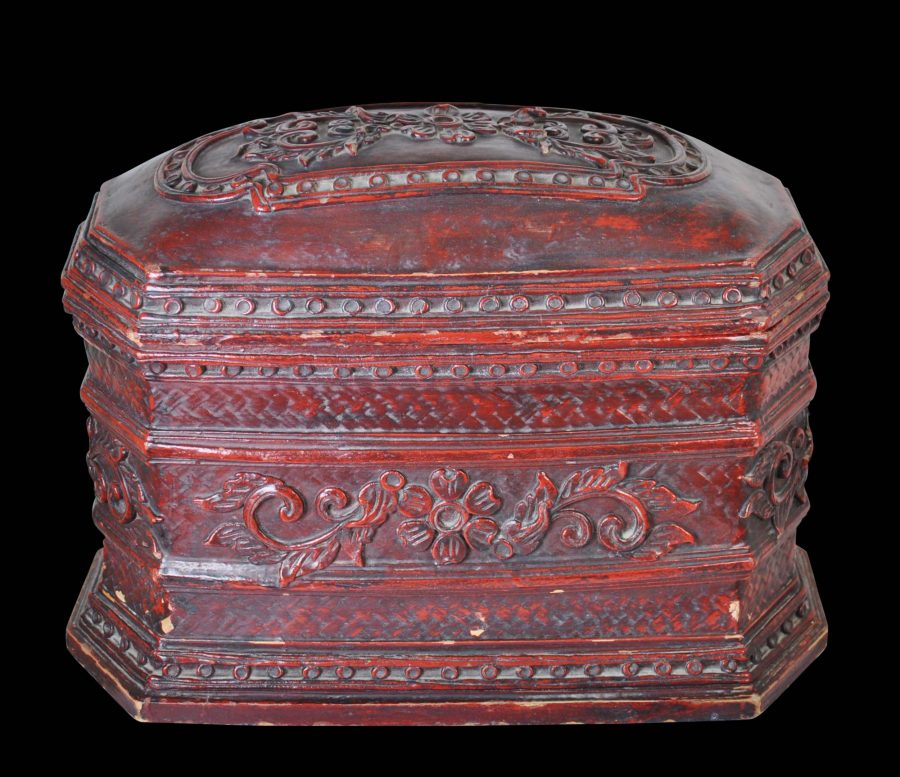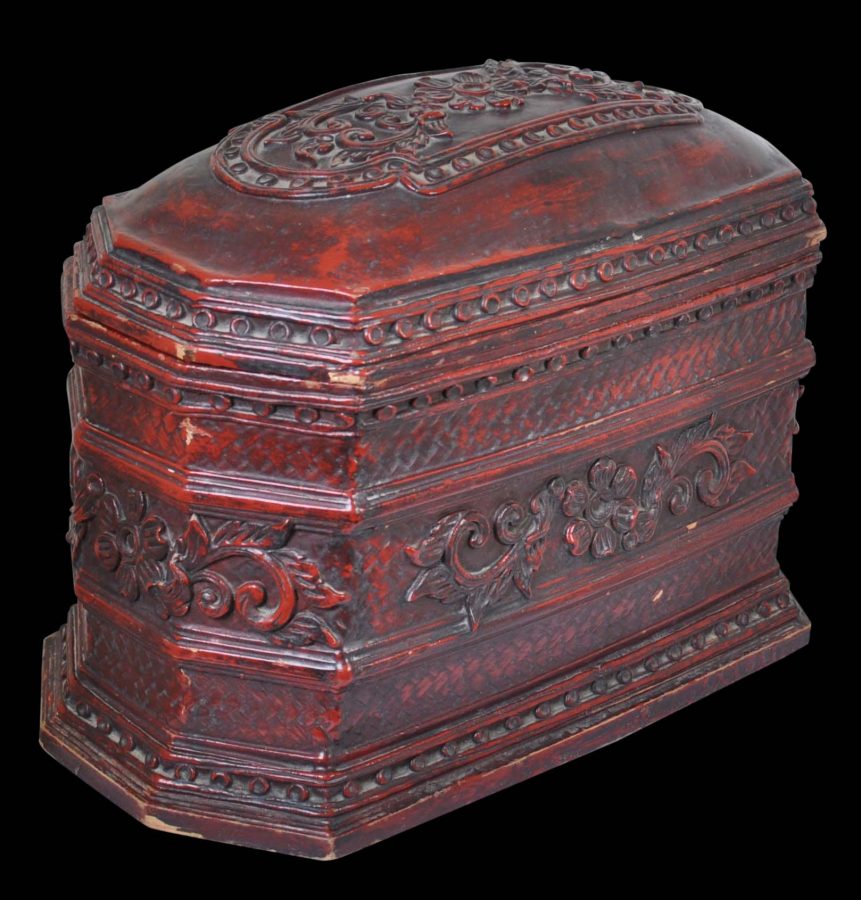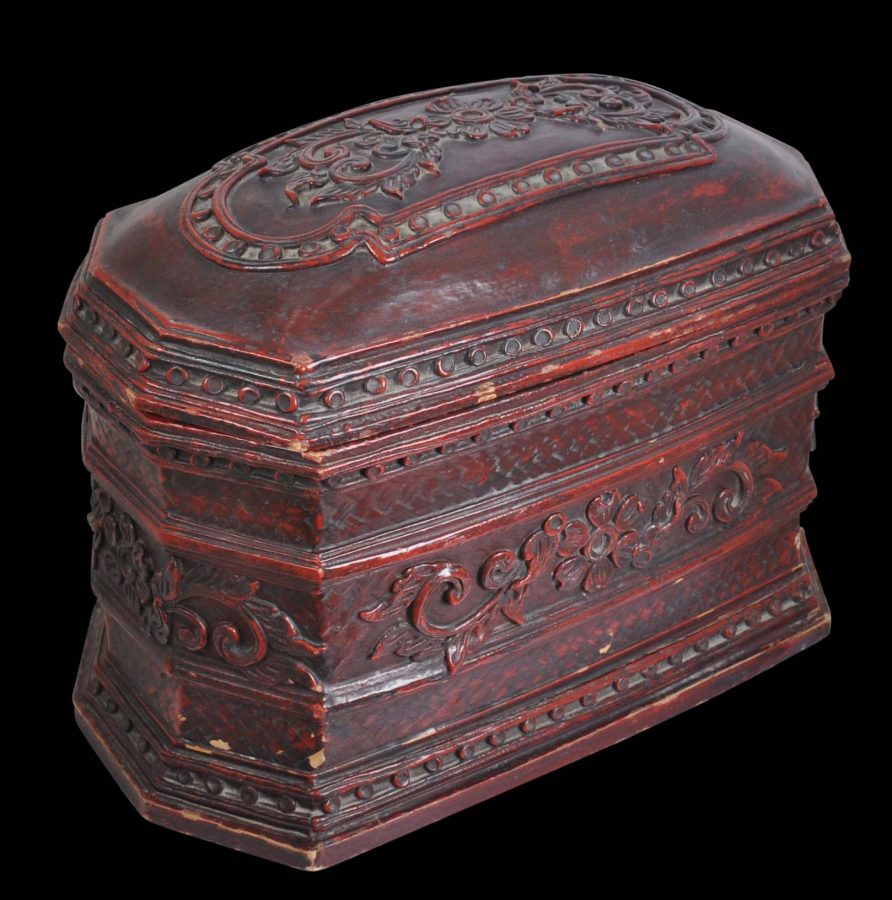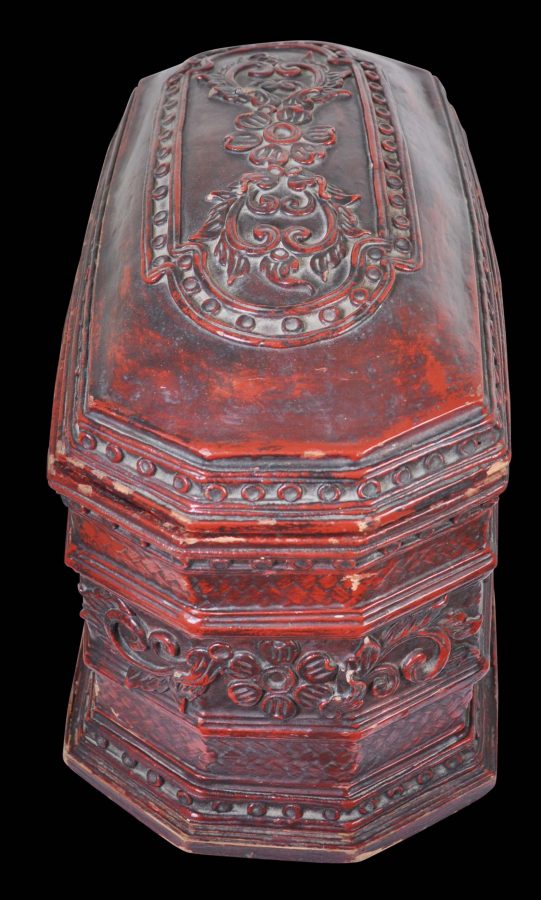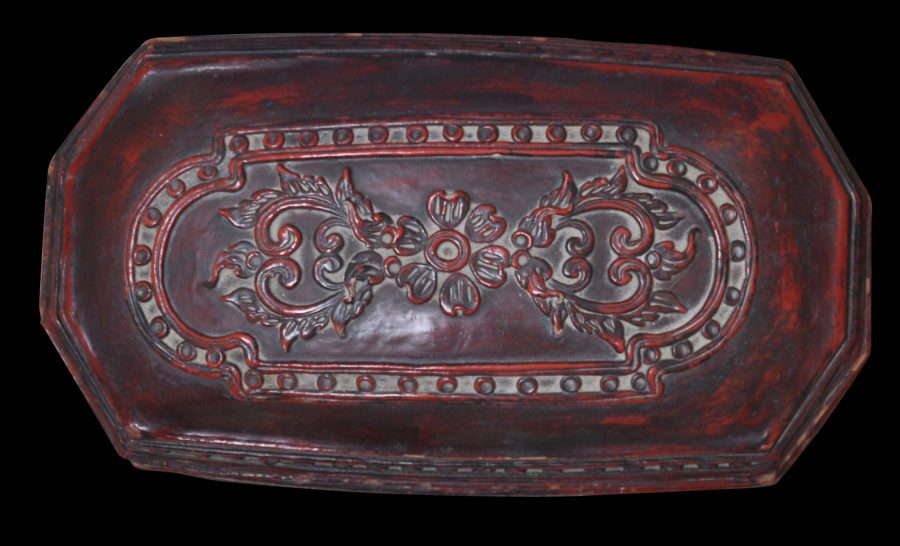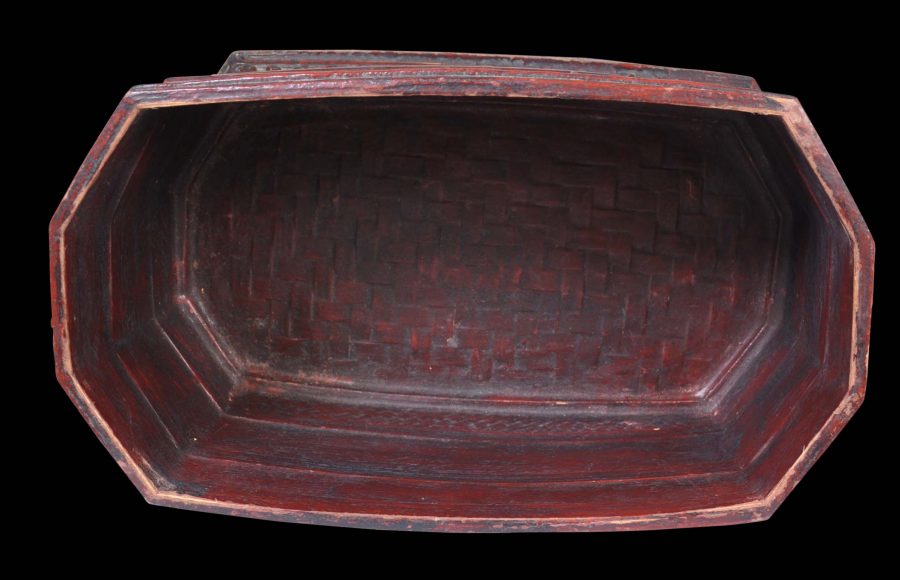Enquiry about object: 5489
Rare Arakan Burmese Lacquer Chest
Rakhine (Arakan) State, Western Burma circa 1870
length: 42cm, width: 24cm, height: 28cm
Provenance
UK art market
This unusual six-sided pillow-shaped box is from Rakhine (Arakan) state in Burma’s far west. Rakhine lacquer is the rarest of all types of Burmese lacquerwork are rarely is present even in museum collections.
The shape is unusual and appears to be influenced by the Chinese pillow form. Possibly, it was intended to serve as a pyi-daung or a box for storing dried tea leaves.
The box is made of a woven split bamboo basket substrate heavily lacquered and then decorated with molded relief work, a technique known as thayo, whereby lacquer is molded and extruded into designs over the surface. The lacquer has a cinnabar-red hue over a darkened base.
The lid is domed and fits over the box and it too is decorated with flower motifs done in thayo work in high relief.
Locally-grown tea is a ubiquitous beverage in Burma. Traditionally, it is offered in restaurants and roadside stalls free of charge as a refreshment to all-comers and passers-by to the extent that it was not even necessary to actually buy anything to be permitted to consume the tea on the premises without charge. Burmese, particularly from rural areas, are still surprised today when they travel outside Burma to discover that they are actually required to pay for tea if they visit a teashop or cafe. The vast quantities of tea consumed and the fact that the dried leaves are not finely milled and so quite bulky en masse required quite large tea leaf storage containers.
The example here has losses to the lacquer here and there, as can be seen from the images, but the rarity of this type of lacquer and this type of receptacle is a compensatory factor. It is a fine piece with a sculptural presence and a lovely patina.
References
Isaacs, R., et al, Laque et Or de Birmanie, Silvana Editoriale, 2011.
Than Htun (Dedaye), Lacquerware Journeys: The Untold Story of Burmese Lacquer, River Books, 2013.


